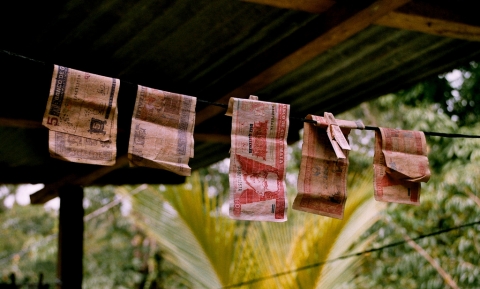
“If you were a criminal, how would you launder drug money?”
That was the question Paul Radu, executive director of the Organized Crime and Corruption Project (OCCRP), and Carlos Eduardo Huertas, director of Connectas, posed to a group of investigative journalists this month in Panama during an ICFJ-Connectas training session on using financial forensics to report on crime.
During the workshop, which was part of the Investigative Reporting Initiative for the Americas, Radu and Huertas encouraged journalists to put themselves in the shoes of criminals and ask themselves what steps they would take to hide their hypothetical illicit activity.
"Investigative reporters can match and surpass the creativity and resourcefulness of the corrupt if they understand how the villains build their criminal infrastructure," said Radu, a former ICFJ Knight International Journalism Fellow and winner of the 2004 Knight International Journalism Award. "A big part of this infrastructure sits on companies, bank accounts and complex business schemes that can be exposed if journalists use advanced 'follow the money' strategies and pattern-recognition technologies."
In an increasingly globalized world, following the money, as the Panama Papers have this year, is critical in uncovering criminal entities and hidden conflicts of interests. Here are three of the workshop's top tips:
Track down the owner
The use of business figureheads to hide illicit activity is both common and legal. Criminal entities may name family members or uninvolved individuals as the heads of their businesses. Sometimes a figurehead doesn't even know the business is using their names, creating a complicated web for reporters to unravel.
Use multiple sources and connect with them regularly
Court cases, publicly available bank account information and police reports are all resources that investigative journalists should tap into regularly. These documents can hold valuable clues and connections to offshore bank accounts and smaller banks without subsidiaries which are often used to abscond with funds.
Think globally, not locally
Criminality often extends beyond borders, especially to countries with lax laws and regulations, meaning that investigative journalists often need to use resources in other countries to uncover lawlessness in their own.
Main image CC-licensed by Flickr via KriKri01.
A version of this post also appeared on IJNet, which is produced by ICFJ.